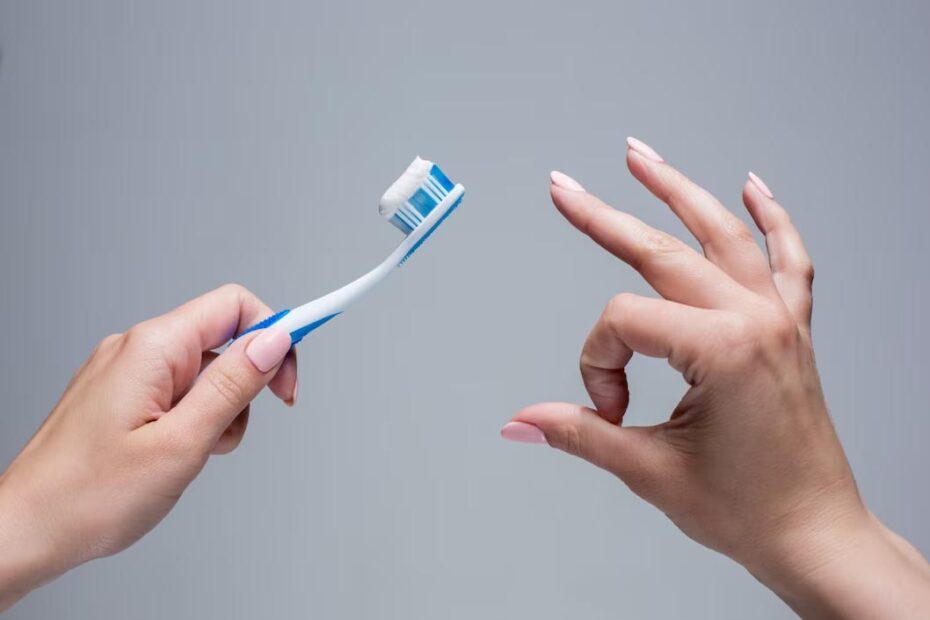Imagine life without a toothbrush! Sure, there are other ways to clean your teeth. However, no other dental cleaning tool is as useful and effective as a toothbrush for safeguarding oral health. So why not take proper care of your toothbrush and increase its efficacy and duration of use? Here are some tips to give your dental scrubber the love and attention it deserves.
How to Clean your Toothbrush?
- Give it a bubble bath: Who doesn't love a good soak? Give your toothbrush a bubble bath by filling a glass with warm water and a dish soap drop or two. Dip it for a few minutes, and then rinse it thoroughly.
- Hit it with heat: Your toothbrush will appreciate a little spa treatment. To disinfect it, place your toothbrush in a bowl of hot water for a few minutes. Later, dry it thoroughly.
- Use vinegar power: Vinegar can be a great natural cleaner for your toothbrush. Take white vinegar with water in a 1:1 ratio, then soak your toothbrush for a few minutes. Then, rinse it well.
- Give it a salt scrub: Salt is a natural abrasive that can help remove build-up on your toothbrush. Wet your toothbrush, dip it in salt, then scrub the bristles gently. Rinse it afterward.
- Make a baking soda paste: A natural cleanser, baking soda can help remove stains and build-up from your toothbrush. Form a paste of baking soda with water and use it to scrub your toothbrush. Wash it thoroughly after 1-2 minutes.
- Use hydrogen peroxide: Give your toothbrush a bubbly bath in hydrogen peroxide to disinfect it.
- Let it air dry: Let your toothbrush air dry in an upright position to prevent bacteria growth.
- Try some light treatment: Use a toothbrush sanitizer device that uses UV-C light to kill bacteria on your toothbrush.
- Don't share: Don't share your toothbrush with anyone to avoid cross-contamination.
- Keep it covered: Keep your toothbrush covered to protect it from airborne germs and bacteria.
- Keep it separate: Keep your toothbrush separate from other toothbrushes to prevent cross-contamination.
Why is it Important to Take Care of your Toothbrush?
A toothbrush may seem like a small thing, a trivial item to be replaced every few months, but it is the key to unlocking the secrets of a healthy mouth.
Imagine a toothbrush left out in the open air, exposed to the elements, dust and grime, and bacteria, doing rounds inside of your mouth. A toothbrush that has not been stored in a clean, dry place, where it can rest and recharge for the next time is a breeding ground for germs and bacteria, a silent destroyer of dental health.
But fear not! There is an easy solution to this problem. First, take care of your toothbrush, as you do for any valuable tool. Store it in a clean and dry place and use a toothbrush cover to protect it from dirt, dust, microbes, and insects. Rinse it thoroughly after each use to remove any traces of food or debris. And replace it every three months to ensure it remains in good condition.
Well, nothing compares to the feeling of a clean, healthy mouth and teeth free of cavities and gum disease. And all it takes is a bit of care and attention to keep that toothbrush in top condition.
When should you replace a toothbrush?
Are you wondering how long is a toothbrush good for? Dentists recommend changing toothbrushes every three months or earlier if the bristles turn frayed or worn. This is because, over time, the bristles on your toothbrush can become less effective at eliminating bacteria and plaque in the mouth.
It's also sensible to replace your toothbrush after an illness like a cold or flu to avoid re-infecting yourself with germs. Moreover, if your immune system is weak, replace your toothbrush more frequently to reduce the risk of infection. When selecting a new toothbrush, choose one with soft to medium-hard bristles, as they are gentler on your teeth and gums. Besides, choose a toothbrush with a comfortable grip and a head size that fits comfortably in your mouth.
By following these tips and replacing your toothbrush regularly, you can help ensure that your dental hygiene routine is as effective as possible in promoting good oral health.
Bottomline
The importance of a toothbrush cannot be overlooked as it is crucial for maintaining good oral health. Regularly cleaning and disinfecting it using the methods discussed above can help remove harmful bacteria. Additionally, storing it in a clean, dry place and replacing it every three months or when bristles become frayed is recommended. By following these simple steps, you can ensure that your toothbrush effectively promotes good oral hygiene and lowers the risk of dental issues.


